外研版(2019) 必修 第一册 Unit 2 Exploring EnglishUnderstanding ideas课件(30张ppt)
文档属性
| 名称 | 外研版(2019) 必修 第一册 Unit 2 Exploring EnglishUnderstanding ideas课件(30张ppt) |  | |
| 格式 | zip | ||
| 文件大小 | 2.3MB | ||
| 资源类型 | 教案 | ||
| 版本资源 | 外研版(2019) | ||
| 科目 | 英语 | ||
| 更新时间 | 2023-02-09 15:51:38 | ||
图片预览



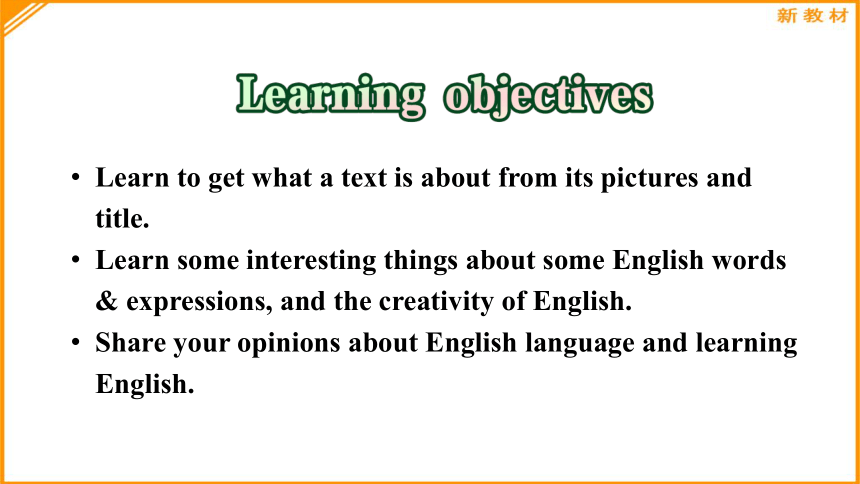
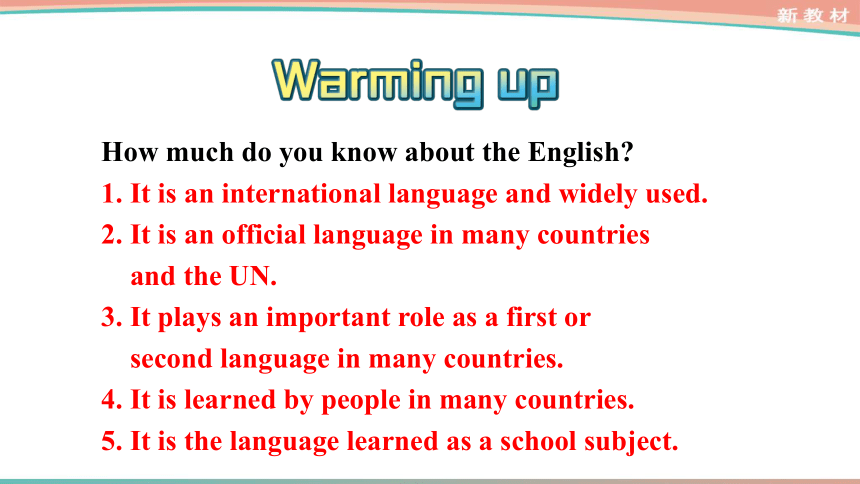
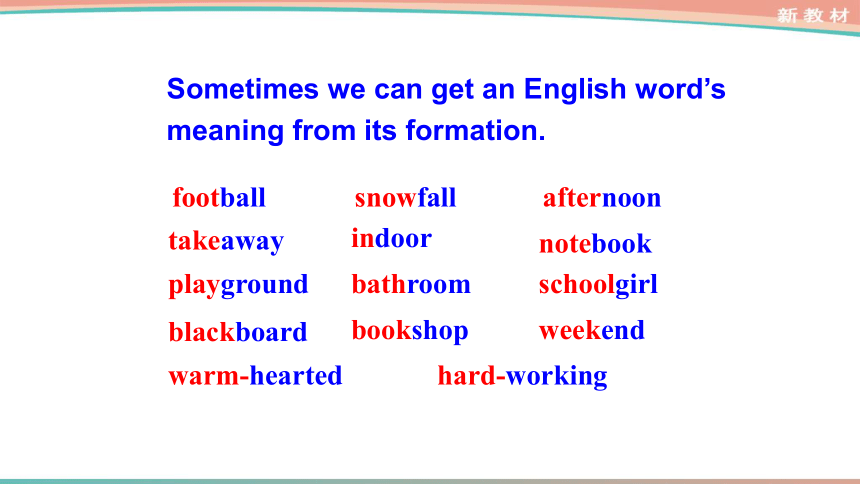
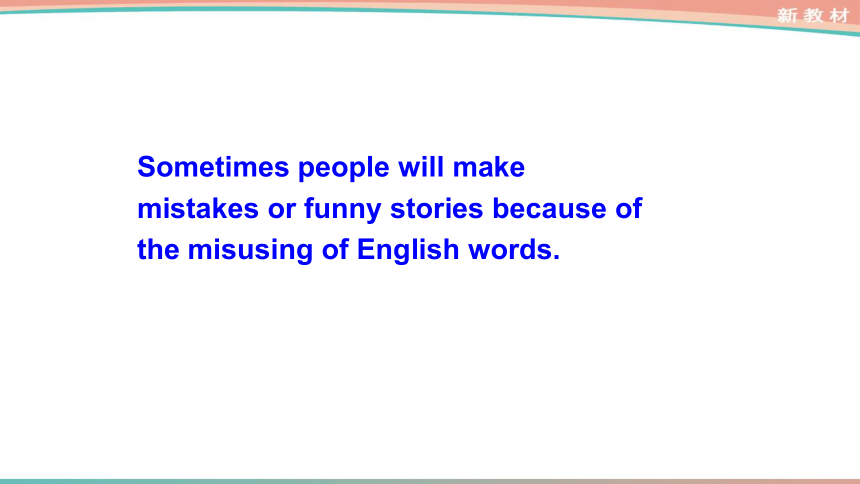
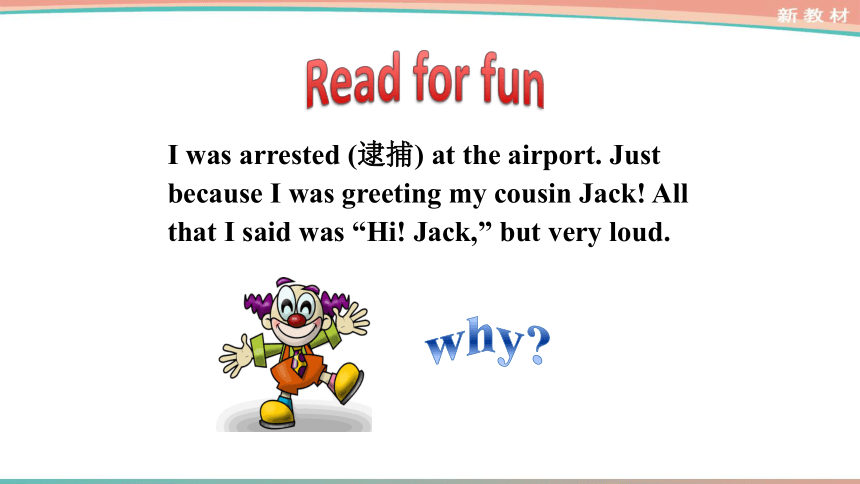
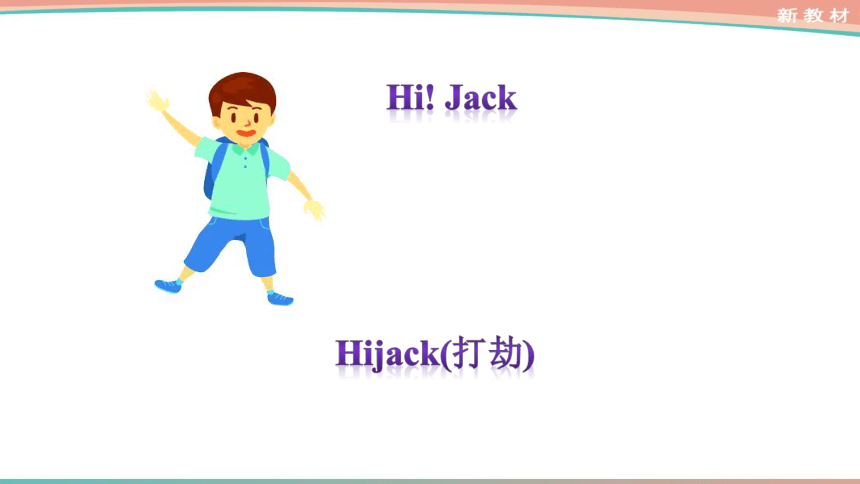
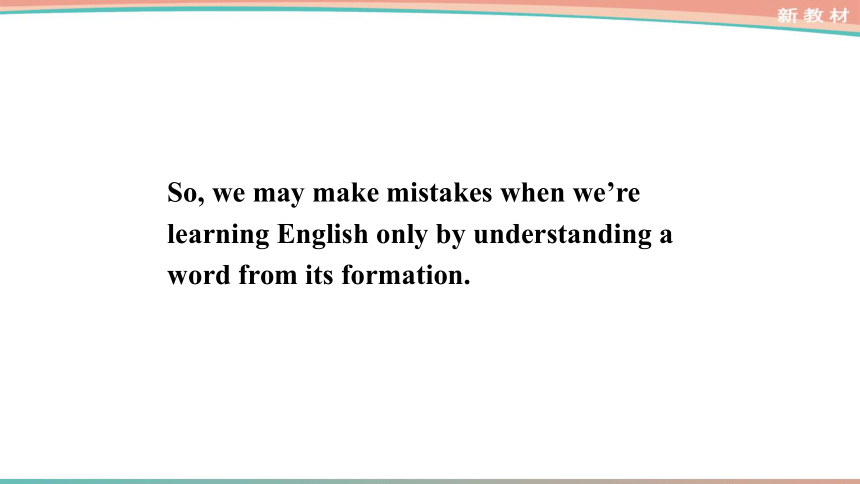
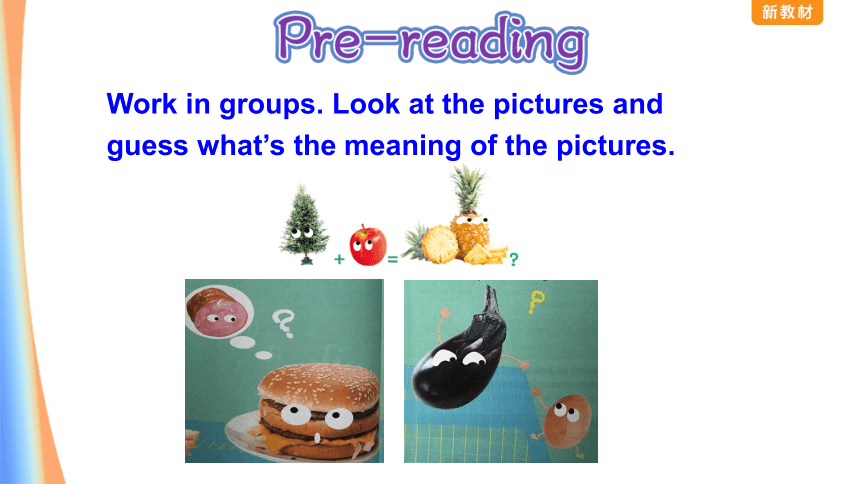
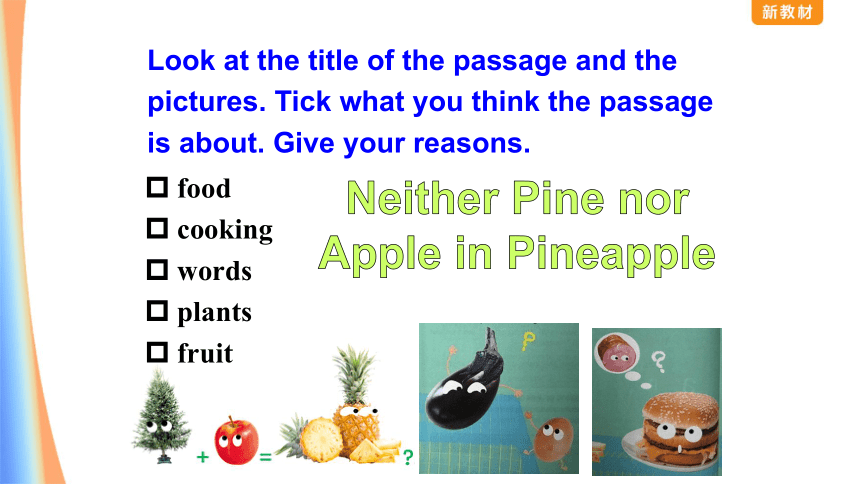
文档简介
(共30张PPT)
Unit 2
Unit 2
Exploring English
Learn to get what a text is about from its pictures and title.
Learn some interesting things about some English words & expressions, and the creativity of English.
Share your opinions about English language and learning English.
How much do you know about the English
1. It is an international language and widely used.
2. It is an official language in many countries
and the UN.
3. It plays an important role as a first or
second language in many countries.
4. It is learned by people in many countries.
5. It is the language learned as a school subject.
Sometimes we can get an English word’s meaning from its formation.
football
snowfall
afternoon
takeaway
indoor
notebook
playground
bathroom
hard-working
warm-hearted
schoolgirl
blackboard
bookshop
weekend
Sometimes people will make mistakes or funny stories because of the misusing of English words.
I was arrested (逮捕) at the airport. Just because I was greeting my cousin Jack! All that I said was “Hi! Jack,” but very loud.
Read for fun
why
Hi! Jack
Hijack(打劫)
So, we may make mistakes when we’re learning English only by understanding a word from its formation.
Work in groups. Look at the pictures and guess what’s the meaning of the pictures.
Look at the title of the passage and the pictures. Tick what you think the passage is about. Give your reasons.
food
cooking
words
plants
fruit
Neither Pine nor
Apple in Pineapple
Read the passage to get the general idea of the passage and check your answer to Activity 1.
food
cooking
words
plants
fruit
Choose the author’s purpose in writing the passage.
To tell us that English is difficult to learn.
To give advice on how to learn English.
To show that English is interesting and creative.
To explain how English was created.
√
In order to support his idea, the author uses many examples that show the 1. ________ madness of English. no egg in eggplant no ham in 2. __________ neither pine nor apple in 3. _________ sculpt a sculpture
paint a(n) 4. ________
BUT take a photo
seasick sick at sea 5. ________ sick in the air 6. ________ sick in a car BUT 7. ________ sick at home “Hard” is the opposite of “soft”.
“Hardly” and “softly” are not a(n) 8. _________ pair.
unique
hamburger
pineapple
painting
airsick
carsick
homesick
opposing
Complete the notes with words from the passage.
“Harmless” is the opposite of “harmful”. Shameful and shameless 9. _________ are the same. burn up burn down
fill in a form 10. _______ a form
Stars are out. They are visible. Lights are out. They are 11. ________. I wind up my watch. It starts.
I wind up the passage.
It 12. ______.
The reason is that English was invented by people, and it 13. _______ the creativity of the human race. behaviors
fill out
invisible
ends
reflects
Housework and homework mean the same.
The opposite of “hardly” is not softly.
WHO in a medical report is used to ask a person.
“Fill in” has the same meaning as “fill out”.
If an alarm goes off, it makes a sudden noise.
Once I wind up my article, I am ready to write a passage.
Decide whether the statements are True (T) or False (F) according to the text.
F
T
F
F
T
T
Use the context to determine the Chinese meaning of the word underlined.
1. Little Tom felt sick because he traveled by car. Poor boy,
he got carsick. _________
2. If you are homesick, you feel unhappy because you are
away from home and are missing your family, friends,
and home very much. _________
晕车的
想家的
3. Water is the opposing force to fire.
_________________
4. Please capitalize the names in the form. e.g.
Judy → JUDY _________
5. Everybody is unique. You are the only one
in the world. _________________
相反的,相对立的
大写
独一无二的,独特的
Read the passage again and then find out the sentences that can show author’s opinions about English.
This got me thinking how English can be a crazy language to learn.
English was invented by people, not computers, and it reflects the creativity of the human race.
You also have to wonder at the unique madness of a language in which…
Choose the best answer.
1. The words “photo” and “homesick” which were mentioned are ______.
A. to show how English can be a crazy language to learn
B. to tell us the differences between their usages
C. to analyze the formation of the words
D. to share how to learn a crazy language
A
2. How does the author develop the passage
A. By providing examples.
B. By making comparisons.
C. By following the way of spelling.
D. By following the order of importance.
A
3. Why does the author say “English was invented by people”
A. Because the English words show everything around us.
B. Because the language helps us communicate with others.
C. Because the language proves how creative human being is.
D. Because the English words are unique in the world.
C
该语篇类型为小品文。课文以幽默、风趣的笔触举例并评价了英语中让学习者迷惑不解的“疯狂”现象。
After reading the passage, please fill in the following blanks.
Do you have any difficulty 1._________ (learn) English better Have you ever wondered why there is no ham 2._______ your hamburger 3._______ why you can’t find any egg in eggplant Maybe this will get you 4._________ (think) how English can be a crazy language to learn. We like to paint a 5._________ (paint), and we are traveling in 6._________ car but we take photos and travel on the bus. When we see the rain, we say “it 7. _________ (rain)” but no sunshining to use when seeing sunshine. The words are really 8. _________ (confuse). Such unique 9. _________ (mad) can be seen almost everywhere because English 10.________ (reflect) the creativity of the human race.
learning
in
and
thinking
the
painting
is raining
confusing
madness
reflects
How did pineapples, hamburgers and eggplants get their names
The name of “pineapple” developed from the Spanish word “pina”, with “apple” added to show it’s a kind of fruit; the name of hamburger came from the idea of “Hamburg steak”, and later people reinvented it and called it “hamburger”; eggplants got the name because they used to look like eggs.
Read the information on the book and answer the questions.
2. Does the information give you a better understanding of the passage Give your reasons.
Open.
Do you agree with the author’s opinion about the English language Give your reasons.
What do you find most challenging about learning English How do you deal with this
1. Search interesting stories that happen because of misunderstanding of English words or expressions. Share your stories next time.
2. Does Chinese have the similar situations mentioned in the text Give your examples.
Unit 2
Unit 2
Exploring English
Learn to get what a text is about from its pictures and title.
Learn some interesting things about some English words & expressions, and the creativity of English.
Share your opinions about English language and learning English.
How much do you know about the English
1. It is an international language and widely used.
2. It is an official language in many countries
and the UN.
3. It plays an important role as a first or
second language in many countries.
4. It is learned by people in many countries.
5. It is the language learned as a school subject.
Sometimes we can get an English word’s meaning from its formation.
football
snowfall
afternoon
takeaway
indoor
notebook
playground
bathroom
hard-working
warm-hearted
schoolgirl
blackboard
bookshop
weekend
Sometimes people will make mistakes or funny stories because of the misusing of English words.
I was arrested (逮捕) at the airport. Just because I was greeting my cousin Jack! All that I said was “Hi! Jack,” but very loud.
Read for fun
why
Hi! Jack
Hijack(打劫)
So, we may make mistakes when we’re learning English only by understanding a word from its formation.
Work in groups. Look at the pictures and guess what’s the meaning of the pictures.
Look at the title of the passage and the pictures. Tick what you think the passage is about. Give your reasons.
food
cooking
words
plants
fruit
Neither Pine nor
Apple in Pineapple
Read the passage to get the general idea of the passage and check your answer to Activity 1.
food
cooking
words
plants
fruit
Choose the author’s purpose in writing the passage.
To tell us that English is difficult to learn.
To give advice on how to learn English.
To show that English is interesting and creative.
To explain how English was created.
√
In order to support his idea, the author uses many examples that show the 1. ________ madness of English. no egg in eggplant no ham in 2. __________ neither pine nor apple in 3. _________ sculpt a sculpture
paint a(n) 4. ________
BUT take a photo
seasick sick at sea 5. ________ sick in the air 6. ________ sick in a car BUT 7. ________ sick at home “Hard” is the opposite of “soft”.
“Hardly” and “softly” are not a(n) 8. _________ pair.
unique
hamburger
pineapple
painting
airsick
carsick
homesick
opposing
Complete the notes with words from the passage.
“Harmless” is the opposite of “harmful”. Shameful and shameless 9. _________ are the same. burn up burn down
fill in a form 10. _______ a form
Stars are out. They are visible. Lights are out. They are 11. ________. I wind up my watch. It starts.
I wind up the passage.
It 12. ______.
The reason is that English was invented by people, and it 13. _______ the creativity of the human race. behaviors
fill out
invisible
ends
reflects
Housework and homework mean the same.
The opposite of “hardly” is not softly.
WHO in a medical report is used to ask a person.
“Fill in” has the same meaning as “fill out”.
If an alarm goes off, it makes a sudden noise.
Once I wind up my article, I am ready to write a passage.
Decide whether the statements are True (T) or False (F) according to the text.
F
T
F
F
T
T
Use the context to determine the Chinese meaning of the word underlined.
1. Little Tom felt sick because he traveled by car. Poor boy,
he got carsick. _________
2. If you are homesick, you feel unhappy because you are
away from home and are missing your family, friends,
and home very much. _________
晕车的
想家的
3. Water is the opposing force to fire.
_________________
4. Please capitalize the names in the form. e.g.
Judy → JUDY _________
5. Everybody is unique. You are the only one
in the world. _________________
相反的,相对立的
大写
独一无二的,独特的
Read the passage again and then find out the sentences that can show author’s opinions about English.
This got me thinking how English can be a crazy language to learn.
English was invented by people, not computers, and it reflects the creativity of the human race.
You also have to wonder at the unique madness of a language in which…
Choose the best answer.
1. The words “photo” and “homesick” which were mentioned are ______.
A. to show how English can be a crazy language to learn
B. to tell us the differences between their usages
C. to analyze the formation of the words
D. to share how to learn a crazy language
A
2. How does the author develop the passage
A. By providing examples.
B. By making comparisons.
C. By following the way of spelling.
D. By following the order of importance.
A
3. Why does the author say “English was invented by people”
A. Because the English words show everything around us.
B. Because the language helps us communicate with others.
C. Because the language proves how creative human being is.
D. Because the English words are unique in the world.
C
该语篇类型为小品文。课文以幽默、风趣的笔触举例并评价了英语中让学习者迷惑不解的“疯狂”现象。
After reading the passage, please fill in the following blanks.
Do you have any difficulty 1._________ (learn) English better Have you ever wondered why there is no ham 2._______ your hamburger 3._______ why you can’t find any egg in eggplant Maybe this will get you 4._________ (think) how English can be a crazy language to learn. We like to paint a 5._________ (paint), and we are traveling in 6._________ car but we take photos and travel on the bus. When we see the rain, we say “it 7. _________ (rain)” but no sunshining to use when seeing sunshine. The words are really 8. _________ (confuse). Such unique 9. _________ (mad) can be seen almost everywhere because English 10.________ (reflect) the creativity of the human race.
learning
in
and
thinking
the
painting
is raining
confusing
madness
reflects
How did pineapples, hamburgers and eggplants get their names
The name of “pineapple” developed from the Spanish word “pina”, with “apple” added to show it’s a kind of fruit; the name of hamburger came from the idea of “Hamburg steak”, and later people reinvented it and called it “hamburger”; eggplants got the name because they used to look like eggs.
Read the information on the book and answer the questions.
2. Does the information give you a better understanding of the passage Give your reasons.
Open.
Do you agree with the author’s opinion about the English language Give your reasons.
What do you find most challenging about learning English How do you deal with this
1. Search interesting stories that happen because of misunderstanding of English words or expressions. Share your stories next time.
2. Does Chinese have the similar situations mentioned in the text Give your examples.
